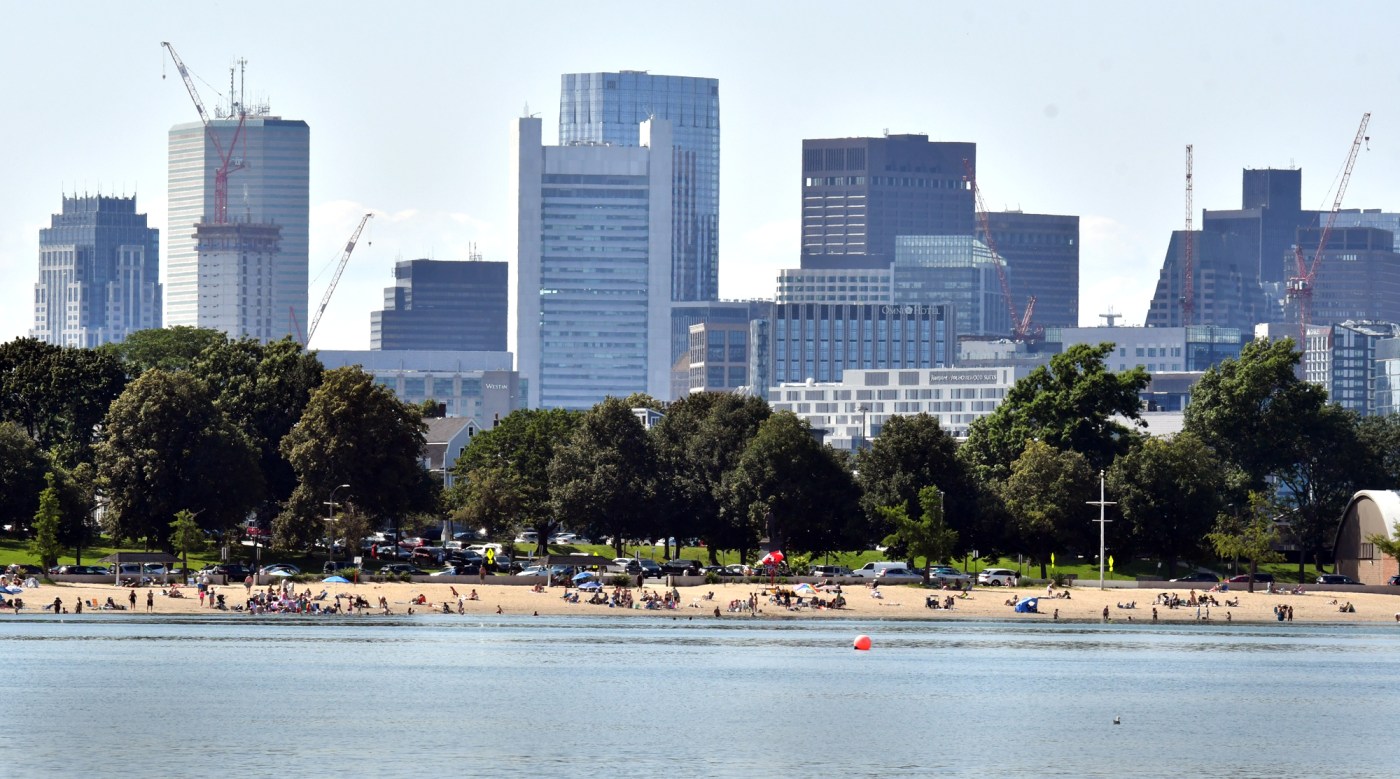
Boston City Hall downplays projected $1B budget shortfall from empty office buildings
City Hall downplayed a new report pointing to a $1-billion-plus budget gap brought on by Boston’s eroding commercial tax base in five years, while an industry group said it underscores a “deeply concerning” economic reality.
The report commissioned by the local think tank Boston Policy Institute in conjunction with The Center for Policy Analysis at Tufts University honed in on how the pandemic-era shift to hybrid and remote work has left office buildings largely vacant, leading to declining office values and commercial real estate prices.
This, the report contends, is particularly problematic for Boston, which relies heavily on commercial property taxes to balance its budget each year. As a result of the “ongoing collapse in office values” the city is likely to face a cumulative revenue shortfall of $1.2-$1.5 billion over the next five years, the report states.
Nicholas Ariniello, the city’s commissioner of assessing, disputed the report’s findings and defended the budget’s reliance on property tax revenue, but did say his department was keeping a “close eye” on real estate trends.
“We have not seen any indications from the real estate market that would translate to a loss of revenue for the city,” Ariniello said in a statement. “Although we don’t feel that the current real estate environment is going to lead to budgetary concerns, it is something that we are keeping a close eye on.”
The report had stated the projected decline in office space values and commercial real estate prices will lower annual tax collections by roughly $500 million annually, starting in 2029, amounting to a 10% yearly revenue loss — which may leave residential taxpayers on the hook for making up the difference.
Ariniello said the system for valuing real estate and collecting property taxes in Massachusetts is established by state law, a structure that “provides municipal governments with a level of stability that other jurisdictions throughout the country do not have.”
He pointed to the city’s reliance on property tax revenue as a primary reason for why Boston was able to weather the global pandemic without having to cut services, while cities in other states were “facing dramatic budget cuts.”
Related Articles
Boston’s city payroll jumps 14% in $100,000-plus earners in one year
Empty office buildings have Boston staring down $1B budget shortfall
Boston City Council punts congestion pricing discussion to future hearing
Boston city councilor pulls Israel-Hamas cease-fire resolution: ‘May cause more division’
Pay up drivers: Boston City Council weighs congestion pricing for Hub access
Greg Vasil, CEO of the Greater Boston Real Estate Board, urged both City Hall and Beacon Hill officials to monitor the report’s projections closely, and to not make any policy decisions that will further harm the commercial real estate sector.
Vasil, for example, repeated his industry group’s frequent criticism of the transfer fee Boston is pursuing on Beacon Hill, which would impose a 2% tax on big-ticket real-estate transactions. City officials say the tax is needed to fund affordable housing development.
The “new report underscores the deeply concerning but essential economic reality that Boston could face a significant impact to the basic municipal services it provides to residents and visitors,” Vasil said in a statement. “For far too long, commercial real estate has funded Boston’s operations at a high level.”
“COVID and a new work routine have changed that dramatically, and the tax revenue will decline,” he added. “Both officials at Boston City Hall and on Beacon Hill must monitor this issue closely to ensure the city meets its budgetary needs in the years ahead.”


